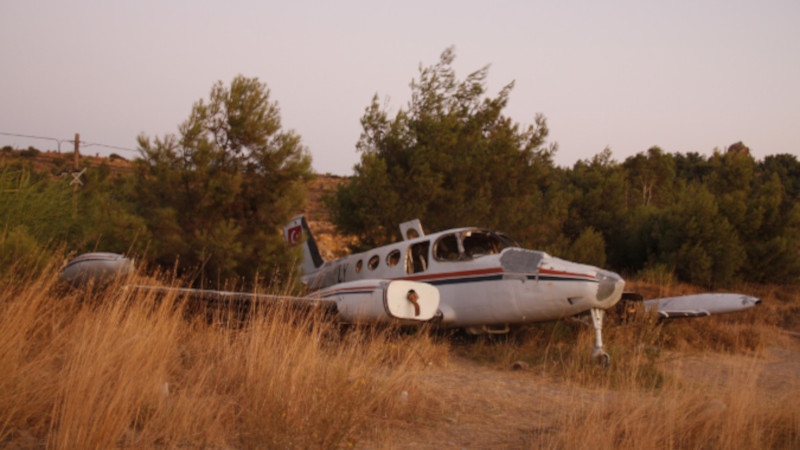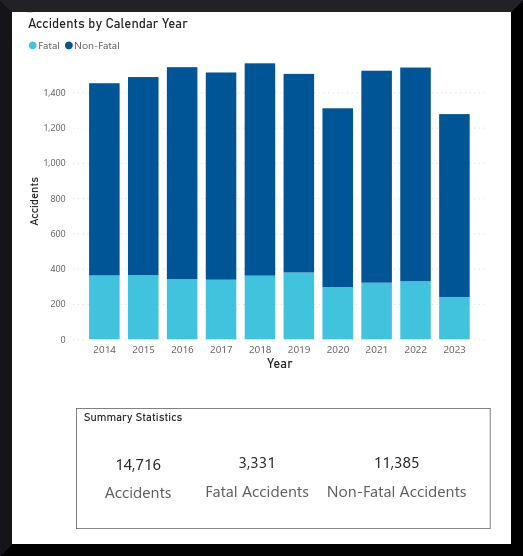The urgent need for more (and better) training
November 22, 2023 by Eric Bradley
The year is not over yet, but so far 2023 is on
track to match the total number of aviation
accidents for the previous 10 years.
As technology and training advance, what we
should be seeing is an improvement in safety
statistics. After all, with each accident, the
pool of knowledge available to help us prevent
future accidents increases.

The nature of the problem
Career progression in the aviation industry
stands apart from all other industries in a
number of ways. Most significantly, there is no
single career pipeline to follow.
Instead, we have a complex system with multiple
career pipelines, within which pilots can move
laterally and vertically. Thus it is possible
that a pilot with a total of 10,000 hours of
flying experience could have only 500 hours of
experience flying fixed wing airplanes. The only
way to check and verify this is to examine the
logbooks, and this system of verification is
based entirely on an honor system.
In fact, many non-pilots would be utterly
astonished to discover there is no rule even
requiring a licensed pilot to keep a log book
at all, let alone for its contents to be
accurately recorded. The closest we get to such
a rule in US aviation is
FAR 61.51,
but in general most pilots do keep accurate logs
of their flight time because most pilots are of
good character by nature and because it is 100%
in their best interest to maintain those records.
Even so, an hour spent idling on the ramp
legitimately counts as an hour of "flight
experience" so the log book doesn't always
paint a complete picture. If it isn't entirely
clear, the only hours that actually need to be
recorded are those spent on training or currency
testing (once certified, a pilot needs to
participate in occasional check rides and
simulator testing in order to maintain currency).
No other flight time is required to be recorded.
The other thing which sets the aviation industry
apart is that in most industries it is usually
the longest serving and most experienced people
who are selected as instructors. In the aviation
industry, the exact opposite tends to be the case.
And while you may be thinking it takes hundreds
or even thousands of hours of experience before
you are trusted to fly passengers around, this is
absolutely not the case at all. It is possible to
fly passengers with less than 50 hours of experience,
and many pilots do. It's not necessarily wise, because
a newly fledged pilot hasn't made all of his or her
allowable mistakes yet, but it's perfectly legal.
With the total number of aviation accidents, including
fatal accidents, remaining stable from year to year,
I hope it is clear to the reader that one of the
potential factors contributing to this problem is
that pilots are doing things where it is expected
that they would need a lot of experience when they
don't always have much experience.

The simple solution
Just because minimal experience is all that is
required, this does not automatically
mean that is is all we should attempt to acquire.
Traditionally a problem faced by students is that
flight training costs considerable amounts of
money. This has made building experience during
training an unviable prospect for most students.
For those who are dreaming of a career in the
exciting field of aviation, it will be ideal to
begin preparing and training as early as
possible. Years before you ever set foot in a
flight school.
Learning the basic principles of flight is not
rocket science. A big problem is that a majority
of those with no knowledge of the subject presume
that it is a very difficult subject to learn.
The earlier you can learn these principles, the
more of a head start you will gain. I can assure
you that passing your written exam before
you enter flight school will surely make a good
impression on your instructors. It shows you have
the right attributes to be a successful pilot.
Another way to get a head start is through
practical experience using a flight simulator.
However, an aspect that aspiring pilots
should be aware of is the distinction between
authentic flight simulators and simulation
games.
While the latter are often misleadingly named,
as they do not accurately emulate the intricate
physics and behavior of real aircraft, genuine
flight simulators provide a realistic and
immersive training experience.
It's crucial to note that flight simulator games
may not offer the level of accuracy required for
professional training. They might lack the
fidelity needed to replicate the complexities of
actual flight scenarios. Aspiring aviators should
be cautious not to confuse the entertainment-focused
nature of simulation games with the serious
training offered by professional flight simulators.
Understanding this disparity is pivotal for those
considering a career in aviation. Practical
experience using a high-quality flight simulator
can significantly contribute to a pilot's skill
development. This awareness ensures that aspiring
pilots make informed decisions when selecting
training tools, setting a solid foundation for
their journey into the world of aviation.
But yet another problem facing
potential flight students is that traditionally
the cost of using a real flight simulator has been
prohibitive — often in excess of 20,000 baht
per hour.
This is one area where we at ACES Education have
the opportunity to make a difference. We have
innovated technology that can make realistic,
high quality training available to almost anyone
who is passionate about learning to fly.
Furthermore we've developed a unique distribution
system through secondary schools to allow as many
people as possible to have the opportunity to
learn. This is very different to what has been
the case in the past. So it will no longer be
necessary to travel half way across the country
to visit a simulator center in a single location,
because there will be a school somewhere
in your area that can cater to your needs.
Getting started with all your theory learned,
all your written exams already passed, and
perhaps as much as 1000 hours of virtual flight
experience under your wing before starting
flight school will surely be enough to let your
dreams take flight!